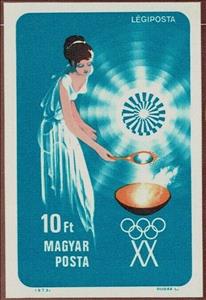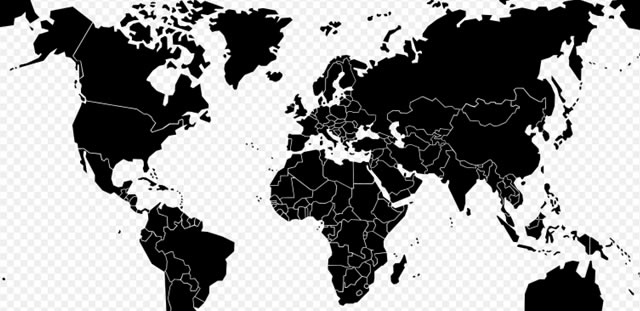Stamp: Woman lighting Olympic Flame (Hungary 1973)
Woman lighting Olympic Flame (Hungary 1973)
31 March (Hungary ) within release Summer Olympic Games 1972 - Munich (Medals) goes into circulation Stamp Woman lighting Olympic Flame face value 10 Hungarian forint
| Stamp Woman lighting Olympic Flame in catalogues | |
|---|---|
| Michel: | Mi: HU 2854B |
Stamp is square format.
Also in the issue Summer Olympic Games 1972 - Munich (Medals):
- Stamp - Gold Medalist Andras Balczo, Horse (Equus ferus caballus) face value 40;
- Stamp - Gold medalist Csaba Fenyvesi face value 6;
- Stamp - Gold medalist Csaba Hegedus face value 4;
- Stamp - Gold medalist György Gedo face value 1.80;
- Stamp - Gold medalist Imre Földi face value 60;
- Stamp - Silver medalist Andrea Gyarmati face value 1.20;
- Stamp - Silver medalist Tamas Wichmann face value 1;
- Souvenir Sheet - Woman lighting Olympic Flame face value 10;
- Stamp - Woman lighting Olympic Flame face value 10;
- Stamp - Woman lighting Olympic Flame face value 10;
Stamp Woman lighting Olympic Flame it reflects the thematic directions:
A flame (from Latin flamma) is the visible, gaseous part of a fire. It is caused by a highly exothermic chemical reaction made in a thin zone. When flames are hot enough to have ionized gaseous components of sufficient density, they are then considered plasma.
A map is a symbolic depiction emphasizing relationships between elements of some space, such as objects, regions, or themes. Many maps are static, fixed to paper or some other durable medium, while others are dynamic or interactive. Although most commonly used to depict geography, maps may represent any space, real or imagined, without regard to context or scale, such as in brain mapping, DNA mapping, or computer network topology mapping. The space being mapped may be two dimensional, such as the surface of the earth, three dimensional, such as the interior of the earth, or even more abstract spaces of any dimension, such as arise in modeling phenomena having many independent variables. Although the earliest maps known are of the heavens, geographic maps of territory have a very long tradition and exist from ancient times. The word "map" comes from the medieval Latin Mappa mundi, wherein mappa meant napkin or cloth and mundi the world. Thus, "map" became the shortened term referring to a two-dimensional representation of the surface of the world.
The modern Olympic Games or Olympics (French: Jeux olympiques) are leading international sporting events featuring summer and winter sports competitions in which thousands of athletes from around the world participate in a variety of competitions. The Olympic Games are considered the world's foremost sports competition with more than 200 nations participating. The Olympic Games are held every four years, with the Summer and Winter Games alternating by occurring every four years but two years apart.
Sport is a form of physical activity or game. Often competitive and organized, sports use, maintain, or improve physical ability and skills. They also provide enjoyment to participants and, in some cases, entertainment to spectators. Many sports exist, with different participant numbers, some are done by a single person with others being done by hundreds. Most sports take place either in teams or competing as individuals. Some sports allow a "tie" or "draw", in which there is no single winner; others provide tie-breaking methods to ensure one winner. A number of contests may be arranged in a tournament format, producing a champion. Many sports leagues make an annual champion by arranging games in a regular sports season, followed in some cases by playoffs.



